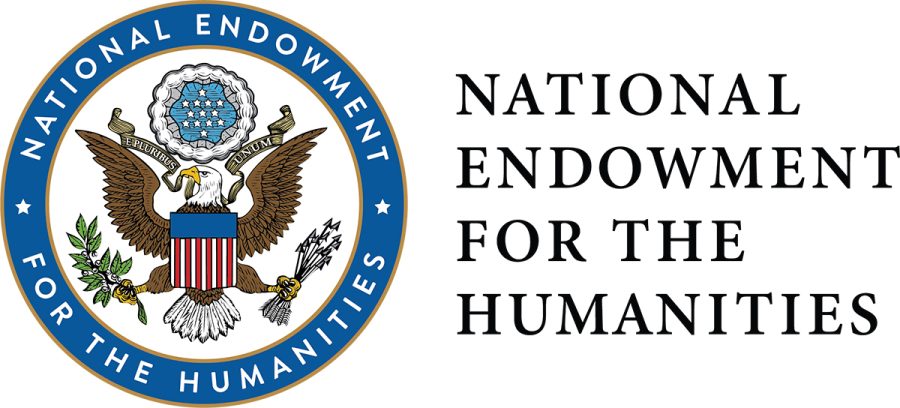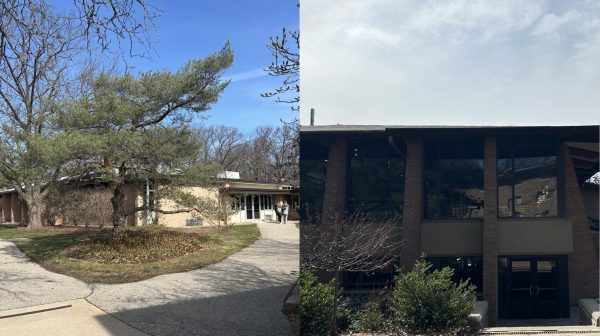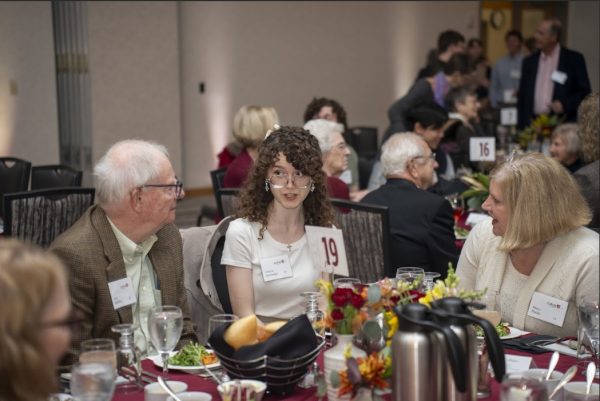Calvin to rejuvenate humanities through $500,000 National Endowment for the Humanities
The NEH helps humanities programs across the country.
Calvin is one step closer to revitalizing the humanities on campus by considering how the humanities can impact core, thanks to funding from the National Endowment of the Humanities. Calvin was one of 292 grant recipients chosen from a pool of over 900 applications. Of the total $135 million distributed, Calvin is receiving $500,000, which will be used to “retain tenure track” for professors across various disciplines, allowing them to contribute to humanities-based initiatives in three areas: communities of practice, engaging new learning communities, and communities and commitments, according to the grant proposal obtained by Chimes.
The NEH, whose origins can be traced back to the Johnson administration, was among numerous financial assistance initiatives included in the Biden administration’s American Rescue Plan.
The endowment’s inclusion in the American Rescue Plan responds to what Benita Wolters-Fredlund, dean of the school of humanities, arts, and social sciences, describes as “national trends” of low enrollment in humanities-based higher education programs across the United States in the wake of the pandemic.
“As we were brainstorming what kind of projects we could ask for support for, the two big ideas that came into mind were initiatives that were already underway … we wanted money to help our professors help us do these well,” said Wolters-Fredlund. “We bought out portions of their salary and bought out portions of their time to work on humanities, forward-looking initiatives, with core being one of them.”
The humanities has the potential to contribute to about 60 to 70% of a student’s core requirements. Given that nearly 30% of declared majors at Calvin are in the humanities, Wolters-Fredlund is optimistic that incorporating humanities education on a broader scale can rejuvenate humanities programs across campus.
“When students take courses in different disciplines, they begin to draw connections that change how they see the world,” said Carolyn Anderson, professor of chemistry and biochemistry and the newly appointed director of core in a Calvin press release published in November 2021. “Complexities are revealed that we might have otherwise missed because our disciplinary perspective was too narrow.”
Though some students welcome the funding from NEH being used to tackle humanities education on a larger scale, others, like philosophy and international relations student Raegan Visker, are concerned that working on a larger scale overlooks the more delicate financial demands of humanities programs themselves.
“If the money could be directly funded into specific humanities majors it would allow underfunded departments to have more robust programs as well as draw new students to Calvin for the humanities,” Visker, a freshman, told Chimes.
Though Wolters-Fredlund stated that the team contemplated pouring funding into programs directly with the grant’s funding, the team instead chose to pursue a more expansive approach in order to appeal to the NEH program for a larger reward. “Positioning it in this ‘we as a university want the humanities to be at the core of what we do’ felt like a stronger pitch. I think the fact that we got funded may be an indication that we made the right call … I stand by the decision we made to think big and to think broad,” said Wolter-Fredlund.
Wolter-Fredlund is hopeful that the decision of taking the long-term approach will eventually pour into the humanities programs directly by causing campus wide stability that will impact humanities departments. “It gives the context of stability to float all the boats,” she said.
More than a dozen professors from various disciplines are working in five focus groups to strategize solutions to incorporate the humanities into the fabric of Calvin’s curriculum in order to advance Calvin’s liberal arts mission. The 5 groups include trans-disciplinarity, public scholarship, the science of learning, the art of teaching, and off-campus learning communities. Initiatives outside of the groups also include work that focuses on Calvin’s core.
While these five groups are composed of selected faculty, students are encouraged to provide feedback in other ways. “Students do have an opportunity to give feedback on aspects of the core as they go through it. This can be done through student evaluations … faculty and chairs of programs are always happy to get student feedback and hear student thoughts. A particularly good moment for that is when programs are getting revised,” said Wolters-Fredlund.
According to Wolter-Fredlund, revitalizing how the humanities are taught at Calvin will ultimately shape the student experience to explore how the humanities play a role at Calvin and in the world.
“The word humanities is about trying to understand the human condition and how humans survive together on God’s earth. That is going to be an enduring part of our human experience to think about and to analyze it to use it to good effect in our lives,” Wolter-Fredlund said.
This article has been updated to correct the inaccurate inclusion of a creative writing group as grant-funded. Chimes regrets the error.







